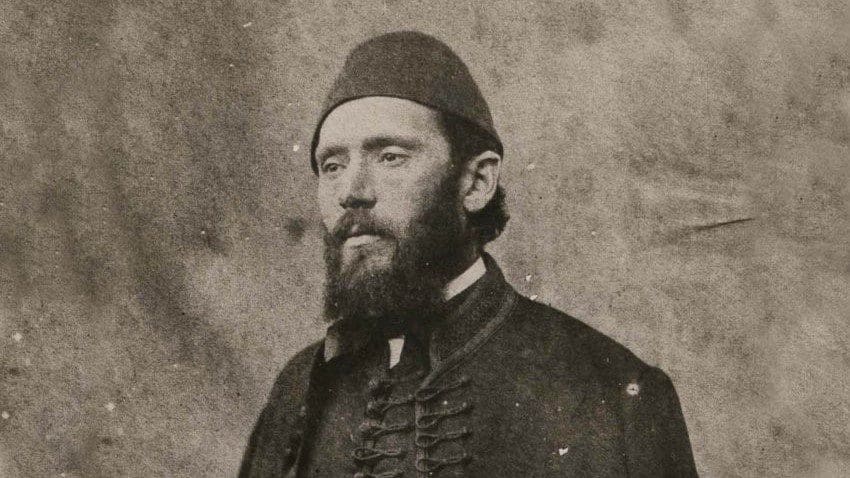Ármin Vámbéry is renowned as a Hungarian Turcologist and traveller, whose studies and travels to the East have had a lasting cultural impact and also influenced a wide range of disciplines such as geography, cultural history, sociology, ethnography, linguistics, and many others. Ármin Vámbéry,
a true pioneer of oriental studies,
ventured far into the depths of Asia, sometimes concealing his identity to avoid being killed by locals suspicious of Europeans. Yet, even in the face of perils, he remained resolute in his scientific inquires and in the desire to solve the mysterious puzzles of the Orient.
Vámbéry’s achievements and unbroken strength in his adventurous pursuits are especially astounding as he came from abject poverty and also had
a severe physical disability that struck him during his childhood— his left leg was partially paralyzed.
(Hence his later moniker ‘the lame dervish’.) Shortly after being born into a Jewish family as Hermann Wamberger, he lost his father during the devastating 1831 cholera epidemic, a tragedy that resulted in the family struggling to make ends meet. By the age of ten, he was already earning his own livelihood—he sold leeches.
Despite the harsh grip of poverty, occasional periods of starvation and his disability, this resilient child pursued his education with unyielding determination, first attending a Talmud-Torah school and later enrolling in a Reformed elementary school. Upon completing his elementary education, he temporarily worked as an apprentice while also taking on tutoring responsibilities that was a demanding work that required huge talent for a person of his age. In 1845, he managed to gather enough funds to enrol in the prestigious Piarist school in Szentgyörgy (today, Svätý Jur in Slovakia) where he excelled in his studies during his first two years. However, his studies were significantly hindered by prejudice and cruel mistreatment due to his physical disability, which eventually forced him to depart from the city. Undeterred, he resumed his education at the Lutheran Lyceum in Sopron, where, once again, he fought against all odds to rise to the top of the class.
His unstoppable dedication to obtaining a good education, defying all difficulties, is exemplified by a note from his diary:
‘Although I was only fourteen years old, I happily made my plans and built castles in the air with great perseverance. While other students spent their time playing games, I already found pleasure in reading travelogues and historical works. The book was not only my friend and comforter in times of misery, but sometimes it also drove away my hunger, because the heated imagination not only nourished my soul, but also my body.’
His special inclination to and talent in learning languages became apparent quite early on. After mastering several European languages, Vámbéry became increasingly interested in learning Middle Eastern ones.
By the age of sixteen, he had a good knowledge of Hungarian, Hebrew, Latin, French, and German.
He was also rapidly acquiring English, the Scandinavian languages, Russian, Serbian, and naturally other Slavic languages, as his place of birth was in the Hungarian Upper Lands, where Slovak speakers had a considerable presence. He also learned the literary Ottoman Turkish, the study of which lured him more and more towards the study of the East, and eventually, shaped his lifelong goal—to study the Eastern languages, its culture and peoples.
Unfortunately, Vámbéry had to discontinue his secondary education due to financial issues. Luckily, by that time the talented young man had already fully developed a method of self-training, which also allowed him to support himself by tutoring others. His diligence and resilience could not go unnoticed: important figures of the era such as Pál Hunfalvy, Zsigmond Kemény, Ferenc Toldy, Mór Ballagi, József Eötvös and Theodor Herzl developed an interest in him. Thanks to the support of the latter two, he finally managed to travel to Constantinople. Theodor Herzl, one of the founders of the Zionist movement, enlisted him for a diplomatic trip to the Ottoman Empire, which was surprising for everyone, as Herzl was famous for working alone.
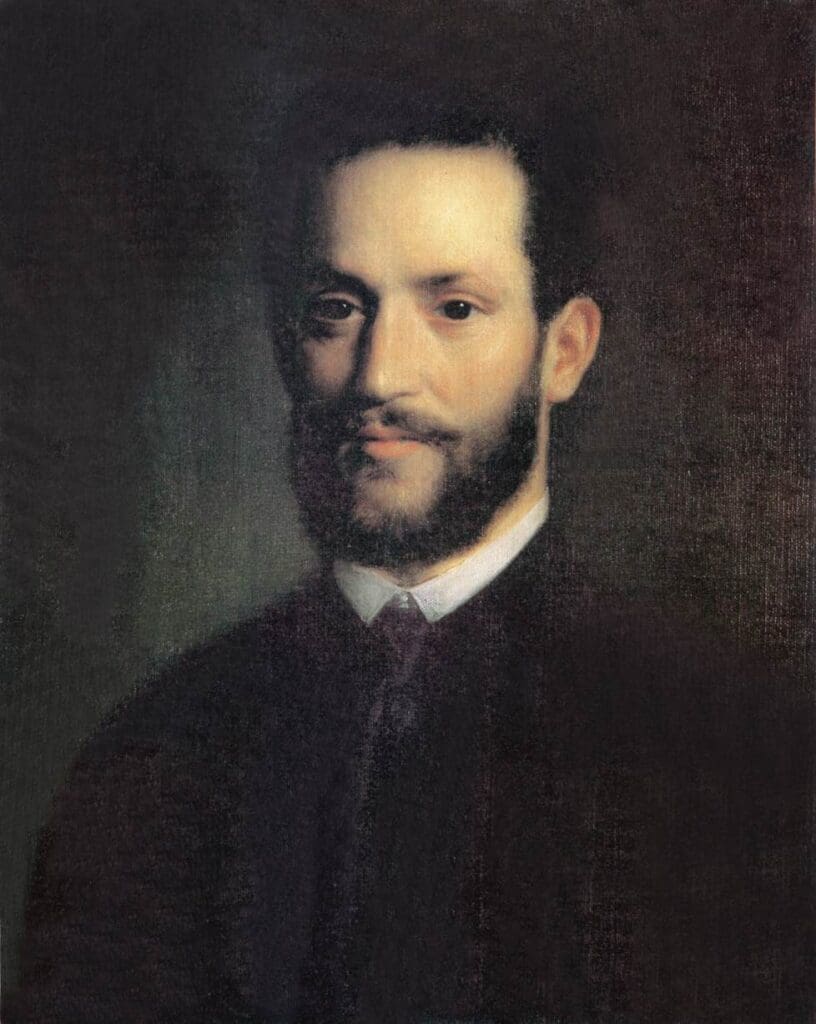
Years later, Herzl wrote the following joking, but admiring remarks about Ármin Vámbéry and his notable love for other cultures:
‘[Vámbéry] doesn’t know whether he is more of a Turk or an Englishman; he writes books in German, speaks twelve languages with equal mastery and has professed five religions, in two of which he has served as a priest…He told me 1001 tales of the Orient, of his intimacy with the sultan, etc. He immediately trusted me completely and told me, under oath of secrecy, that he was a secret agent of Turkey and England.’
In the capital of the Ottoman Empire this cultural ingenuity earned Ármin Vámbéry the full trust of the local nobility, whom he worked for as their personal tutor of the European languages. For his contributions to translating Ottoman works into European languages, he was also elected to the Hungarian Academy of Sciences, gaining widespread reputation in academic circles as well. He became good friends with the great 19th century Hungarian poet, János Arany, with whom he had many a friendly conversations during their long walks along the Danube.
After returning to Budapest in 1861, he received funding from the Hungarian Academy of Sciences for a very daring scholarly enterprise:
disguised as a Sunni dervish under the name of Reshit Efendi,
Vámbéry was expected to travel all across the Middle East and Central Asia.
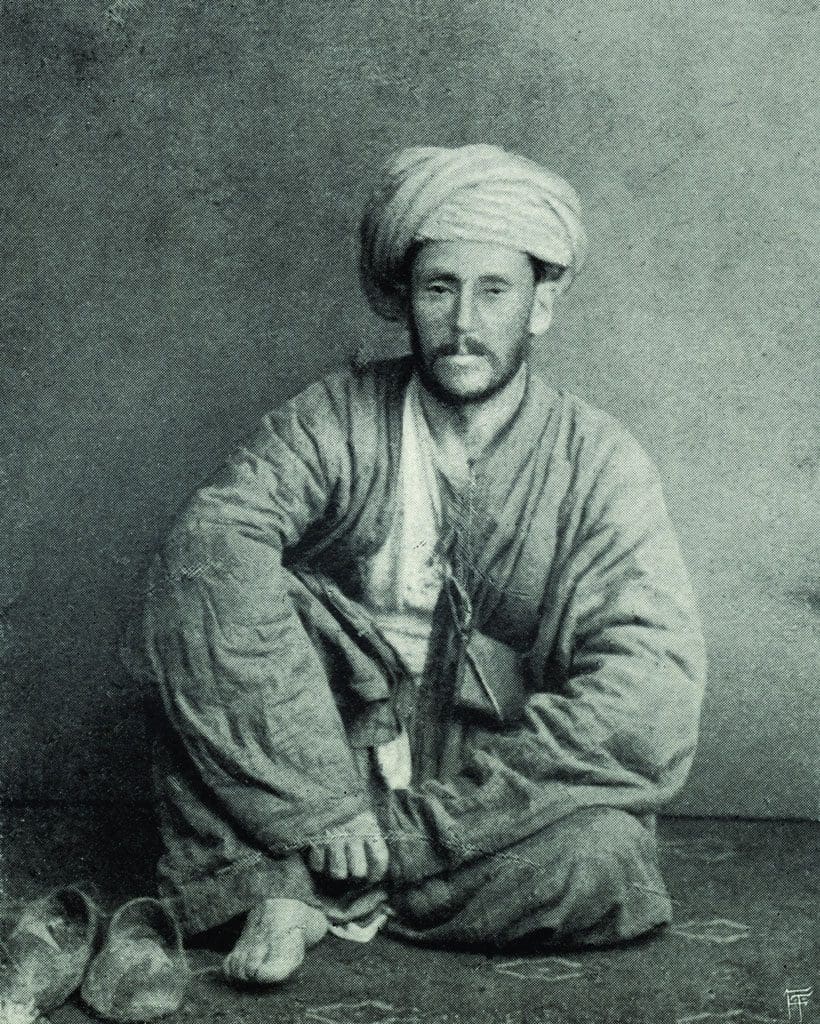
After crossing the Balkans and the Black Sea, he joined a group of pilgrims returning from Mecca. Thanks to his language prowess and erudition, he knew every detail of the Qur’an and the Eastern way of life, which won the trust of the caravan immediately and helped him preserve his disguise. However, that is not to suggest that hiding was easy, especially as his life depended on maintaining his incognito. Due to the tensions between the Russian and the British Empire, two powers competing for influence in the region, he could have easily been mistaken for a spy of the great powers. ‘We Europeans eat, drink, sleep, cry, sigh, and wave differently than the Easterners,’ he wrote at one point, highlighting the difficulties of hiding his true identity in circumstances where any mistake could have cost him his life.
He indeed found himself in a tight when one of the Central Asian local rulers
suspected him of being a British spy,
and interrogated him for half an hour. Yet, Ármin Vámbéry eventually left the despot with plenty of information and gifts, having fully convinced him of his fake identity—a stunt that could be pulled only by a linguistic and culturological genius like him.
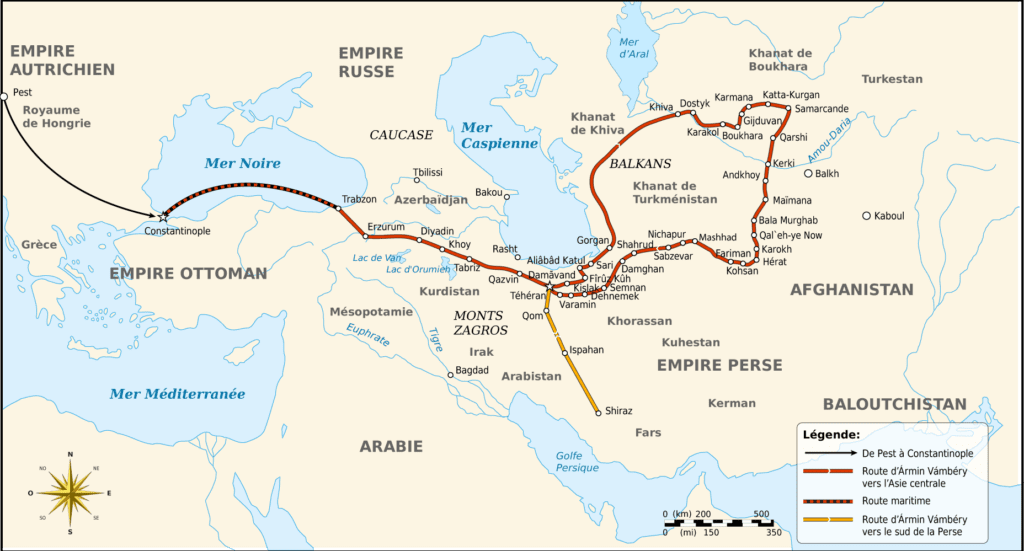
Upon his arrival back in Europe, Vámbéry began the work that he could not start during the journey, for fear of compromising his disguise. His Travels in Central Asia and its Hungarian version Közép-ázsiai utazás were published in 1865. The book won him European-wide recognition, and awards such as the British Royal Victorian Order, for his dedication to fiercely defending British policy and interests in the Middle East in his works. He was even granted an audience with the Austro-Hungarian Emperor.
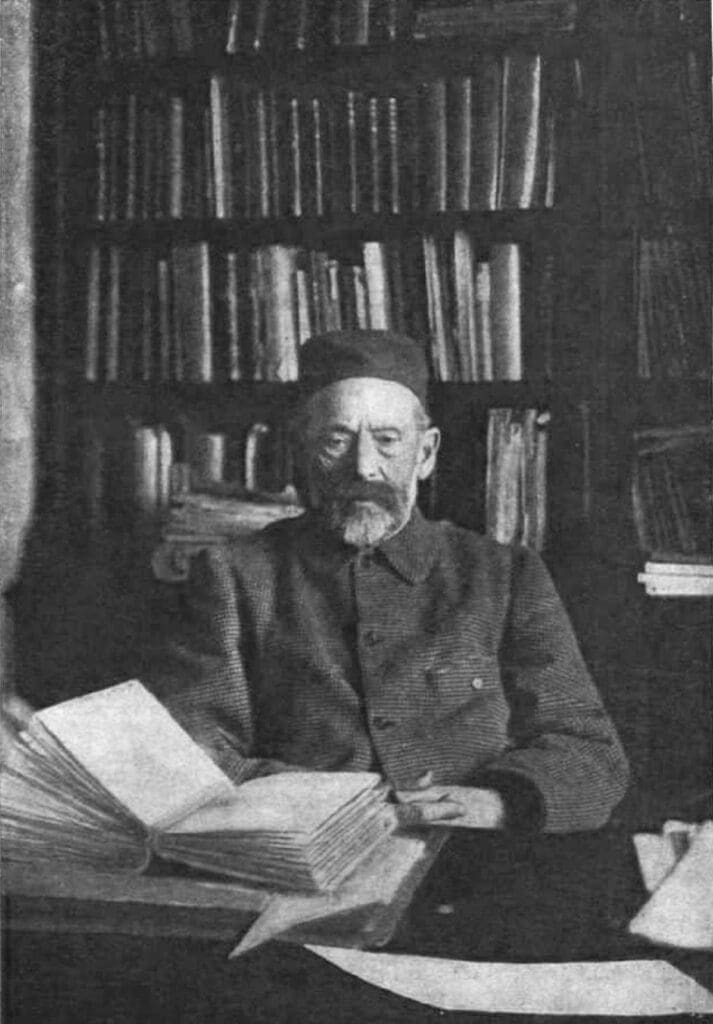
After his famous travel was completed, he also participated in the famous ‘Ugric–Turkic war’, a scientific debate over the origins of the Hungarian language, advocating a much deeper Turkic connection than the proponents of the Finno–Ugric theory proposed. Although it is true that Turkic languages had a strong influence on the Hungarian language, Vámbéry’s theory has since been disproven, as it was established that the Hungarian language is Ugric at its core—to learn more, read our article about the Hungarian and Khanty-Mansi connections. Nonetheless, Vámbéry’s valuable contributions to oriental studies as well as his rich cultural legacy still live on: the knowledge he gained during his studies and travels lie at the foundation of the West’s early scientific inquiry into the region of the Middle East.
Ármin Vámbéry passed away on 15 September 1913, exactly 110 years ago. He was laid to rest in the Fiumei Road National Burial Garden.

